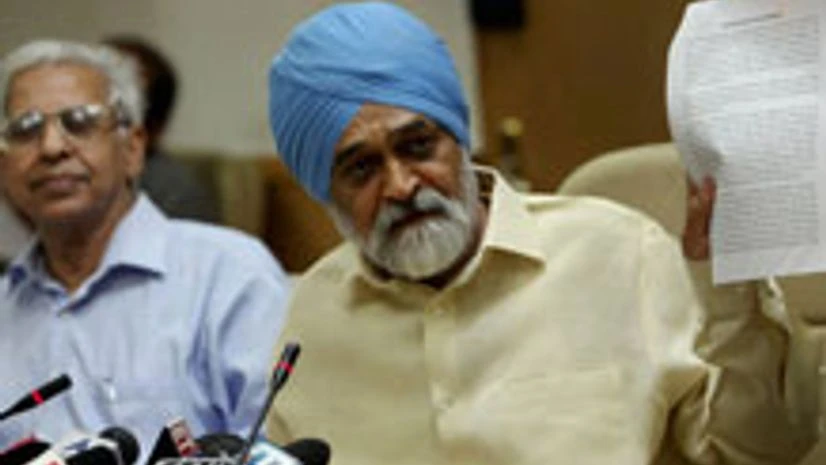As the government grapples with implementation and policy bottlenecks in infrastructure, land, business regulations and labour, the Planning Commission along with ‘India @75’—a grassroots initiative of the Confederation of Indian Industry (CII) today unveiled the ‘India Backbone Implementation Network’ (IBIN) which will strive to identify contentious issues and find a common ground among diverse players to enable the economy achieve its growth potential.
The IBIN is conceived to be a multi-stakeholders organisation that will bring out tools and systems which will enable collaboration between various parties to a dispute like government, industry and civil society.
“The tools that IBIN will formulate will be applicable to central departments and state governments extending right up to the city and local levels,” Arun Maira, Planning Commission, member told reporters.
More From This Section
IBIN which has been modeled along the lines of the Total Quality Management (TQM) system of Japan is also based on such working examples in countries like Brazil and South Korea. Commending the effort, Planning Commission deputy chairman Montek Singh Ahluwalia said that the network should identify 5-6 controversial issues and adopt a process that all stakeholders can actually talk amongst themselves.
“The network has the full backing of the Prime Minister of India and also union cabinet as it is part of the 12th five-year plan document,” Ahluwalia said.
He also gave the example of 4-year undergraduate course announced by the Delhi University and the opposition it is facing from some academic quarters as an incident in which IBIN can help in bringing all stakeholders together for a dialogue.

)
